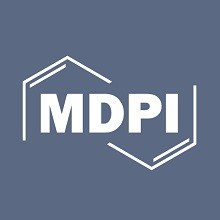
دانلود مقاله عزت نفس جهانی و استرس در پرستاران
چکیده
کلید واژه ها
1. مقدمه
2. مطالب و روش ها
3. نتایج
4. بحث
5. نتیجه گیری ها
منابع
Abstract
Keywords
1. Introduction
2. Materials and Methods
3. Results
4. Discussion
5. Conclusions
Institutional Review Board Statement
Informed Consent Statement
Data Availability Statement
Conflicts of Interest
References
چکیده
(1) پرستاران با توجه به منابع مقاومتی خود می توانند اثرات استرس را کاهش دهند، تعهد خود را به کار افزایش دهند و عملکرد خود را در مواجهه با چالش ها در محیط کار بهبود بخشند. هدف از این مطالعه تعیین نقش میانجی یک حس عمومی انسجام و احساس قابل درک بودن، مدیریت پذیری و معناداری مرتبط با عزت نفس جهانی و شدت استرس درک شده در گروهی از پرستاران لهستانی 45 تا 55 ساله بود. (2) تحقیق با استفاده از روش بررسی تشخیصی بر روی یک گروه 176 پرستاری (M = 49.1؛ SD = 3.1) که در هفت بیمارستان واقع در Olsztyn (لهستان) کار میکنند، انجام شد. برای جمع آوری داده ها از موارد زیر استفاده شد: مقیاس استرس ادراک شده - PSS-10، مقیاس عزت نفس روزنبرگ و پرسشنامه حس انسجام آنتونوفسکی (SOC-29). (3) به گفته 02/21 درصد از پرستاران، سطح استرس آنها در محل کار کم، 89/44 درصد متوسط و 09/34 درصد بالا بود. عزت نفس تقریباً نیمی از پرستاران شرکتکننده در مطالعه (30/48 درصد) در سطح متوسط، 82/31 درصد آن را بالا و 89/19 درصد آن را پایین ارزیابی کردند. تجزیه و تحلیل میانجیگری نشان داد که احساس کلی انسجام و احساس قابل درک بودن، مدیریت پذیری و معناداری در همبستگی بین عزت نفس جهانی و شدت استرس جایگاه میانجی دارند. با این حال، نقش میانجی آنها جزئی است. مطلوب است که برنامه های ارتقای محیط کار ایمن برای تقویت منابع شخصی پرستاران، که می تواند در مقابله با عوامل استرس زا مفید باشد.
توجه! این متن ترجمه ماشینی بوده و توسط مترجمین ای ترجمه، ترجمه نشده است.
Abstract
(1) Owing to their resistance resources, nurses can reduce the effects of stress, increase their commitment to work and improve their functioning in the face of challenges in the workplace. The aim of this study was to determine the mediatory role of a general sense of coherence and a sense of comprehensibility, manageability and meaningfulness correlated with global self-esteem and the perceived stress intensity in a group of Polish nurses aged 45–55 years. (2) The research using the diagnostic survey method was conducted on a group of 176 nurses (M = 49.1; SD = 3.1) working in seven hospitals located in Olsztyn (Poland). The following were used for data collection: Perceived Stress Scale - PSS-10, Rosenberg’s Self-Esteem Scale and Antonovsky’s Sense of Coherence (SOC-29) Questionnaire. (3) According to 21.02% of the nurses, their stress level at the workplace was low, 44.89% reported it was medium and 34.09% reported it was high. The self-esteem of nearly half of the nurses included in the study (48.30%) was at a medium level, 31.82% felt it was high and 19.89% felt it was low. The mediation analysis showed that a general sense of coherence and a sense of comprehensibility, manageability and meaningfulness have a mediator status in a correlation between global self-esteem and stress intensity. However, their mediatory role is partial. It is desirable for safe work environment promotion programmes to reinforce nurses’ personal resources, which can be helpful in coping with stressors.
Introduction
According to many studies, the contemporary work environment can be a source of stress and burden for nurses [1,2]. The level of stress perceived by nurses increase while the environmental stressors accumulate. An awareness of occupational stress and the experience of its adverse health consequences encourages prophylactic actions [1–3]. There are theoretical reasons and empirical evidence that an important role in the process of coping with adversities is played by one’s personal resources, i.e., a set of relatively stable personal traits, cognitive factors and convictions, which affect the threat assessment and the coping processes [4]. One of such resources is self-esteem, also referred to as a sense of self- worth, which remains in a close relationship with the ability to predict the range of one’s capabilities [5–7]. This is extremely important to nurses when they take actions, especially in new, unknown situations that are difficult to manage, because a nurse who starts a new activity should take into consideration her own capabilities. The coping effectiveness also depends on personal resources, referred to as ‘a sense of coherence’. According to Aron Antonovsky, this concept is founded on the assumption that there is a continuum of states between health and disease, which should be perceived as a whole, as a dynamic process of achieving a balance between requirements and resources in confrontation with stress [8].
Conclusions
More than 1/3 of the nurses in the study group experienced high-intensity stress during the past month. The global self-esteem score for approx. 80% of the nurses was average or high. The results for the overall sense of coherence and its components: comprehensibil- ity, manageability and meaningfulness, do not differ much from those in other studies conducted among Polish nurses. It has been shown in the adopted mediation model that a general sense of coherence and a sense of comprehensibility, manageability, and meaningfulness have a mediator status in a correlation between global self-esteem and stress intensity. However, their mediatory role is partial in the correlation between the variables. It is desirable for safe work environment promotion programmes to reinforce nurses’ personal resources, which can be helpful in coping with stressors.
